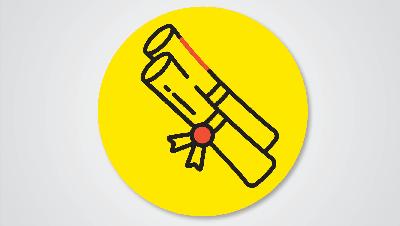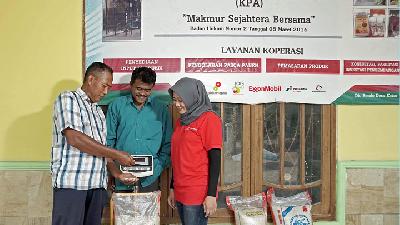ExxonMobil Indonesia’s Contribution to the Country
Monday, August 15, 2022
arsip tempo : 174694083852.
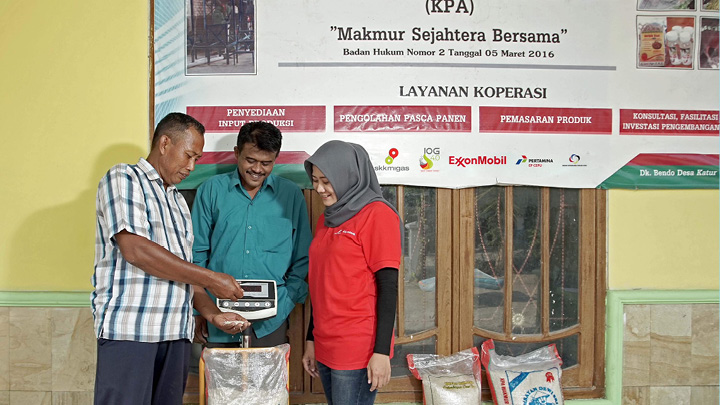
It was not yet bright in the morning, but the mothers were already busy preparing their wares. The fathers were also agile to help their wives carry the crops from the motorcycle to the stall. When the sun came up, the atmosphere was even busier. Some customers were bidding while carrying a rattan basket, eating lontong and soy sauce tofu for breakfast, or simply enjoying a cup of sugar-free kothok coffee. The shouts of merchants along the hall made the market so vibrant. They peddled their goods to attract customers.
Aris, Head of Gayam Village Market Management, Bojonegoro, East Java, said that this kind of atmosphere now happens every day. The new market reopened in August 2021 after the revitalization program from ExxonMobil Cepu Limited (EMCL), a subsidiary of ExxonMobil, the operator of the Cepu Block in East and Central Java. The program has increased the economic activity of the residents of Gayam District and the surrounding area.
“Before revitalization, traders only get income on Javanese market days, each Wage and Pahing was less than Rp1.5 million. After the revitalization that started in 2018, the market is open every day. Their income has doubled," he said.
He added that the construction of around 75 kiosks and 130 merchant stalls keeps the wheels of the market economy moving, especially in the post-pandemic period. Merchants and buyers are getting more comfortable. Coupled with good drainage facilities, waste disposal sites, the existence of management offices, and the development of the administrators’ managerial capacity.
“The Gayam Market, which is now managed by the Village-Owned Enterprises (BUMDes) Gayam Mandiri, has managed to earn up to Rp105 million per year. This amount is sourced from kiosk rental and user fees. During operation, the circulation of money reaches around Rp41 million in each of its market activities," he continued.
Busyness is also felt in the Agribusiness Producers Cooperative (KPA) Makmur Sejahtera Bersama, Katur Village, Bojonegoro. The location is only ten minutes from the market. The rice grinders roar incessantly. Tirelessly, they continue to process dry unhulled rice produced by 263 assisted local farmers from 12 villages in Gayam District and two villages in Kalitidu District. At least, there are more than a thousand tons of dry grain absorbed by the KPA.
“This menthik wangi rice is given the brand Patembayan Dewi Sri," said Darusman, Head of KPA, while showing the packaged rice. "This rice has been tested and certified. We sell it to caterers for consumption by Banyu Urip Field workers, shops, minimarkets, as well as hotels and restaurants in the surrounding area.”
The patience of the farmers, continued Darusman, yields extraordinary results. The continuous assistance provided by EMCL since 2014, starting from capital assistance, milling equipment, to laboratory tests, has made the hard work of the farmers pays off.
“Not only does it provide economic benefits for local farmers, but also helps food security in Bojonegoro Regency,” he continued.
Aris and Darusman are the motors for their surroundings. Aspects of sustainability and the passion to grow together are the principles of encouraging people's economic growth, especially to recover faster and rise stronger in this post-pandemic period.

MobilTM Mikrosite provides RON 92 non-subsidized fuel in rural areas.
Sustainable Energy Contribution
The same spirit is also the foundation of EMCL's commitment to support energy security in Indonesia. With the support of SKK Migas and partners, the productivity of the Cepu Block with safe, reliable, and efficient operations has made it as the main contributor to domestic oil production by more than 25 percent. At peak production, the Cepu Block can produce up to 235,000 barrels per day.
“As of mid-2022, EMCL is proud to have produced a cumulative oil production of more than 540 million barrels of Cepu Block oil. This amount exceeds the initial development plan (POD) target of 450 million barrels. This figure also shows that the Cepu Block operation has contributed to Indonesia's revenue equivalent to almost six times the initial investment," said Muhammad Nurdin, Senior Vice President Production EMCL.
The operational reliability of the Cepu Block, continued Nurdin, can’t be separated from the skilled hands and brilliant performance of the country's best people. More than 99 percent of the workforce in Cepu Block operations are the best Indonesians. In addition, during the construction period, the Banyu Urip Project involved more than 460 national and local companies and had a multiplier effect in the transfer of technology and knowledge. More than 85 percent of the national subcontractors came from the surrounding areas, especially Bojonegoro and Tuban.
“This is also a form of implementing the principles of sustainability and empowerment that we are doing to boost economic growth to recover faster as well as to increase the capacity of domestic resources," said Nurdin. “Our investment in Indonesia is more than just increasing national income.”
The economic empowerment of local business partners in the downstream sector is also the focus of ExxonMobil through its subsidiary, PT ExxonMobil Lubricants Indonesia (EMLI). There are more than 11,000 retailers spread throughout Indonesia who sell and distribute MobilTM and Federal brand lubricants. Moreover, the lubricant brand is processed at the Cilegon factory with a capacity of 700,000 barrels per year.
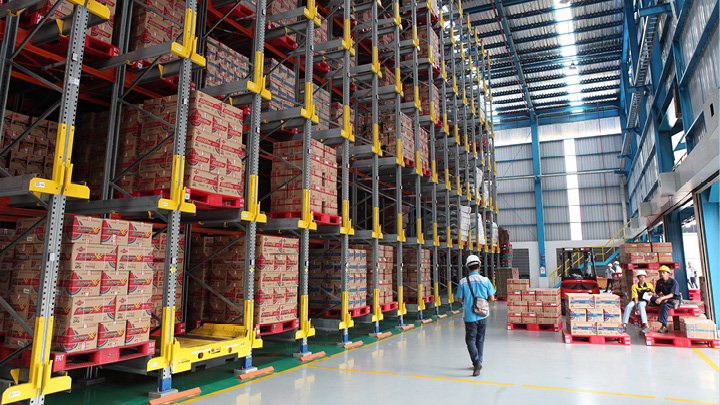
The lube oil blending plant in Cilegon, Banten, has a processing capacity up to 700,000 barrels per year.
PT EMLI is also fully committed to providing access to high quality energy to the rural area. More than 2,000 MobilTM Mikrosite are present on the island of Java with sales of non-subsidized fuel quality of RON 92. The company also supplies diesel fuel to Java, Kalimantan, and eastern Indonesia to support the growth of the mining industry and other business activities. Besides, PT EMLI also supplies more than 350,000 tons of petrochemical products for the Indonesian market. Some of them are used as raw materials for making health masks.
Commitment to Realize Low Carbon Emissions
In line with the Government of Indonesia's efforts to achieve its emission reduction target or Net Zero Emission (NZE) by 2060 or earlier, ExxonMobil is also committed to supporting this achievement. One of them is through the application of Carbon Capture Storage (CCS) technology. This technology will help reduce greenhouse gas emissions by absorbing carbon dioxide from its source and then safely re-entering it into the earth.
“Together with Pertamina, we are currently evaluating the application of low-carbon technology in Indonesia through the implementation of CCS," said Hariadi Budiman, Chief of Representative of Esso Indonesia Inc., one of ExxonMobil's subsidiaries in Indonesia.
The United Nations Intergovernmental Panel on Climate Change stated that these technologies will play an important role in achieving emission reduction targets. Cumulatively, he continued, ExxonMobil has more than three decades of experience in applying these technologies and has absorbed around 40 percent of the carbon dioxide produced by humans from industrial activities.
“ExxonMobil's collaboration with Pertamina and the government puts Indonesia on the right track not only to provide sustainable solutions, but also to make Indonesia a pioneer at the regional level in the CCS industry," said Hariadi.
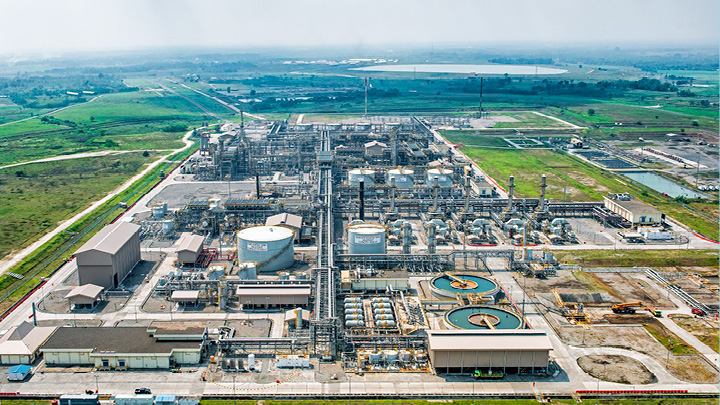
The oilfield in Banyu Urip Field, Bojonegoro, East Java is operated by 99 percent of the nation's best talents.






